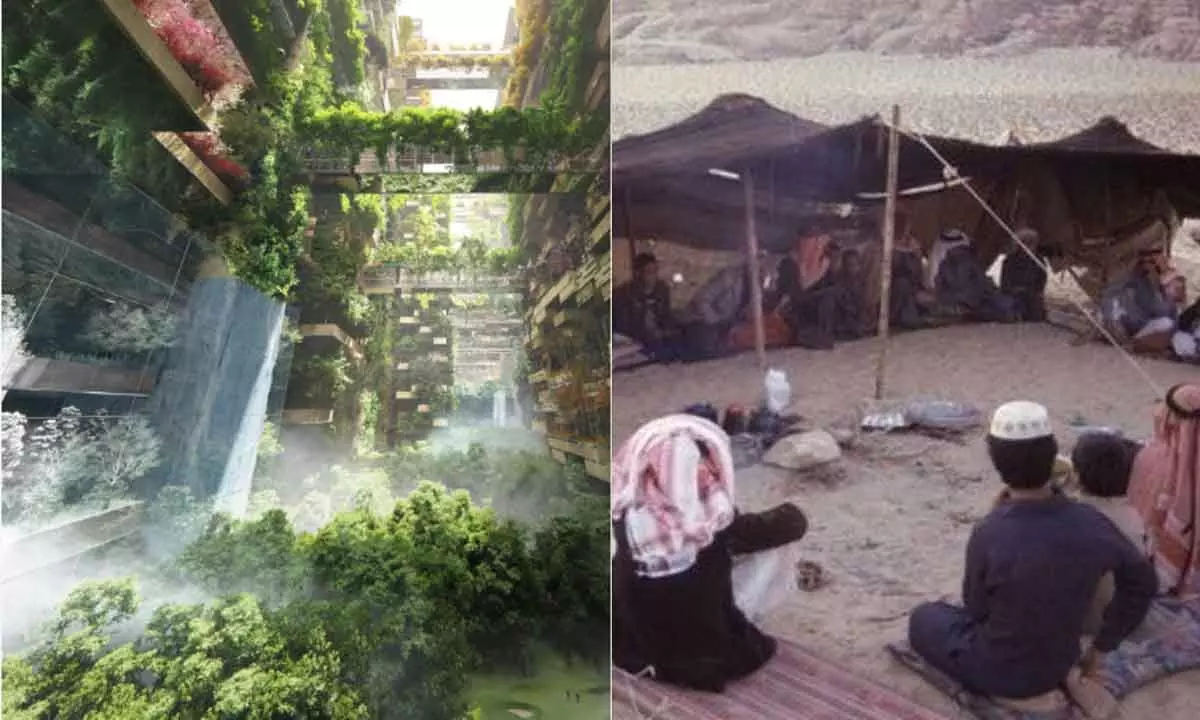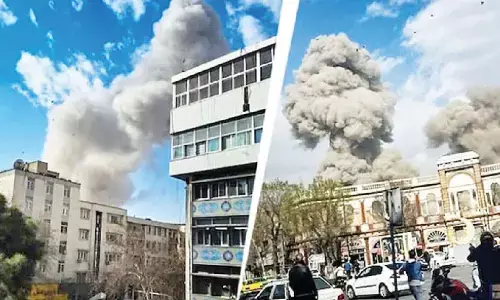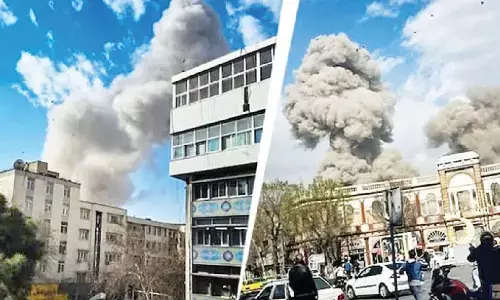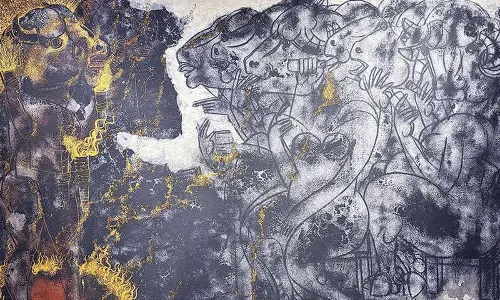Saudi dream project puts ancient tribe in peril

Landlessness, joblessness, homelessness, marginalisation, food insecurity, increased morbidity and mortality, loss of access to common property and social disarticulation
Landlessness, joblessness, homelessness, marginalisation, food insecurity, increased morbidity and mortality, loss of access to common property and social disarticulation... all this could result in forced migrations.
Much study has been done on those instances when the rich and powerful decide to 'develop' an area according to their plans and preferences. This development often is a tool to enrich a certain segment of the society or improve upon the living conditions of the urbanised people at the cost of even the environment.
In fact, governments often see 'development' as a solution to curb free and liberal voices or to usurp weaker sections' rights. This includes the right to livelihoods, cultural heritage and choice.
Such projects that 'develop' a nation and add to the comfort of the city people displace thousands of people from their original habitat leading to all the ills mentioned in the beginning of the piece. It could be the Three Gorges Dam of China, Sardar Sarovar Dam in India, Ahafo Mine in Ghana or any modern city. One thing in common they have: Displacement. Not many even bother to know about them. No one cares to read about it even if written and not many join protests against the same.
Saudi Arabia's Line City project is one such announced in 2017 by the Crown Prince of Saudi Arabia, Mohammed bin Salman. This hi-tech business hub is coming up along the Red Sea Coast in the northwestern part of Saudi Arabia at a cost of $500 billion. This region is milder as far as its temperature is concerned compared to other parts of the country. The 26,500 sq km city will link Jordan and Egypt via Saudi territory.
The 'civilized people' will have 3,80,000 more jobs and are estimated to contribute contribute $48 billion (INR 36,000 crore) to the country's GDP by 2030. This city is going to be the first zero-carbon city of the world perhaps being a part of the NEOM project (NEOM aims to be the future of livability as its foundation, unprecedented in scope. The name "NEOM" is derived from two words. The first three letters from the Ancient Greek prefix neo-meaning "new." The fourth letter is from the abbreviation of Mostaqbal, an Arabic word meaning "future").
The project has been labelled as a city project as part of a 'civilisational plan that puts humans first. 'The Line' is being crafted as a linear city for one million people and it runs 170 km long. However, the width is going to be a 'walkable five minutes only.' It is a kind of global city in the making with state-of-the-art infrastructure offering superior quality life.
It sounds good and the pictures (futuristic) look good. Everyone dreams to be a part of the 'Line City' population experiencing an ET life on this planet.
Is it so? Does everybody want to be a part of it? How about the Howeitat or Huwaitat? Do they want to be a part of it? Ask them and their answer will definitely be no. More than 20,000 voices unanimously would say no to it. But, this is Saudi Arabia and those voices of the Judhami Tribe won't be heard. For the Tribe, the area to be developed in the region is their homeland. For centuries so, not for a decade or so. It is not that the Huwaitat did not protest. They did and whoever did so has been put behind bars. The most vocal critic of them all, a sort of leader of Huwaitats' Alya Abutayeh Alhawaiti, lost his life due to his dissent.
An ever willing American PR company branded these people aborigines and compared them to animals fit only for banishment as the 'Line City' coming up in the area is no ordinary venture. It is, as the Crown Prince incomparable thus far. He said, "Why should we sacrifice nature for the sake of development? Why should seven million people die every year because of pollution? Why should we lose one million people every year due to traffic accidents?"
No one asked him: "Hey there. What is it that you are talking about? Did you just say you are not sacrificing nature? Eh? Why should anyone die of pollution or in accidents?
If that is the motive, why build a new city? Are you going to empty all your cities and accommodate the people here in this new heaven of yours? Why don't you instead spend all the money earmarked for it to prevent those pollution deaths? Or stop those accidents?
No. It is said absolute power corrupts absolutely. It did in the present instant too. The city's construction is cutting "through its surroundings, forcing its way through tough terrain rather than embracing natural features such as the coast line." However, this does not seem to be practised on the ground.
Howeitat nomads were recorded as the only tribesmen living in the southern, inland area of the al-Karak-Shawbak sanjak (district) of the Ottoman Empire in the 16th century. According to the Ottoman historian Qutb al-Din al-Nahrawali (d. 1582), the tribe was a branch of the Banu Uqba, the dominant tribe of the al-Karak-Shawbak region during Mamluk rule (1260–1516) and whose chieftains were officially recognized by the Mamluk authorities. The Howeitat are unusual in claiming descent from a single ancestor, an Egyptian named Huwayt. They progressed to a partly settled life by the early 20th century but were rendered homeless and nomadic due to the rivalry between two tribal leaders of the area.
The tribe even approached the United Nations through some activists. Like any ruler, the crown prince promised a fair share of developmental fruits to them but threw them out from their land later without offering a place to stay in exchange. Sounds familiar? The other side of all developmental stories sounds so!








